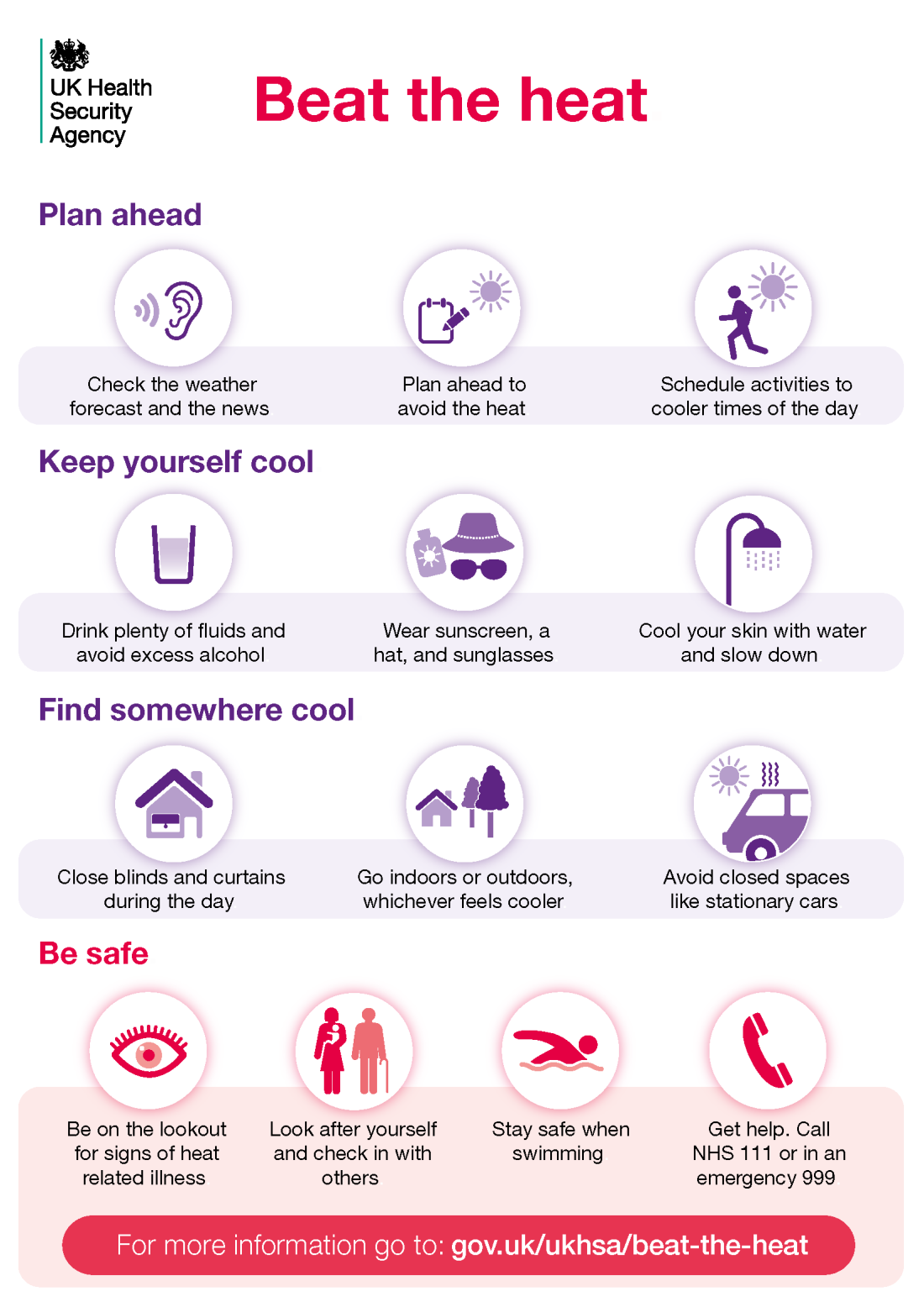
Many of us enjoy an increase in the temperature, but when it's too hot there are health risks, particularly for the young, those over the age of 65 or those with pre-existing health conditions such as respiratory and cardiovascular diseases.
Follow these tips to stay safe in hot weather:
- Stay hydrated by drinking plenty of fluids, particularly water, and avoiding alcohol, caffeine, or hot drinks.
- Check on vulnerable family, friends, and neighbours.
- Know the symptoms of heat stroke or heat exhaustion.
- Keep out of the sun between 11am and 3pm when the sun is at its strongest.
- Close windows and curtains in rooms that face the sun to keep your home cool.
- Turn off non-essential lights and electrical items as these generate heat.
- Wear light, loose-fitting cotton clothes, and a wide-brimmed hat, sunglasses and light scarf to minimise the risk of sunburn..
- Apply a sunscreen with a sun protection factor (SPF) of at least 30 and at least a four-star ultraviolet A radiation (UVA) protection.
- Take extra care to protect children and babies.
- Follow the weather updates and advice on keeping well in the heat.
- Contact NHS 111 when you fall ill or get injured but it is not an emergency.
- Call 999 for an ambulance if a person has severe symptoms, such as a loss of consciousness, confusion or seizures.
To prepare for hot weather, you can:
- Listen to the news and check your local weather forecast so that you know when hot weather is expected.
- Look out for advice on what to do if services such as power, water supplies and transport are likely to transport are likely to be affected.
- Check air pollution forecasts and advice, as air pollution can become worse during hot weather and can cause problems for people with asthma and other breathing problems.
- When hot weather is expected, plan your activities to avoid being outside during the hottest part of the day, between 11am and 3pm.

